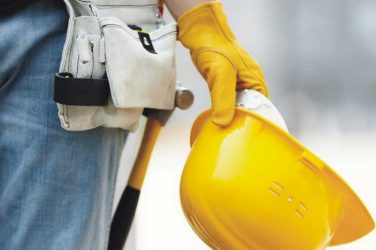The February 22nd protest in Belo Horizonte, the resulting police action, as well as the January killing of a Congolese refugee and a recent civil servant strike, are a testament to the ongoing reality of popular unrest in Brazil. While this time wages and racism were the central concerns, over the past several years, particularly from 2018 through 2022, strikes and protests reveal the unfortunate reality of a Brazilian populace fed up with political, economic and social injustice.
Ultimately, the reasons for prolonged strikes and protests in Brazil from 2018 until 2022 can be boiled down to the basic issues of money, human rights, and governmental paralysis. Highlighted by truckers’ discontent over export routes, high diesel prices, toll exemption and tax reform, strikes during the Temer and Bolsonaro administrations have had significant economic implications, stifling GDP growth and contributing to economic hardship.
Though Bolsonaro may indeed cultivate a “special relationship” with truckers, by and large, the strikes of 2018 and 2021 reflect the ongoing crises in business and supply chain bottlenecks that the government has failed to address.
Petrobras strikes present another case in point. The workers’ strike in May of 2021 was a clear response to the company’s privatization plans, and the mishandling of the COVID pandemic. Although bus drivers, teachers, delivery workers, metal workers, mass transit workers and academics have all made their voices heard on the streets, the Petrobras strikes of 2021 have garnered most of the attention as a result of their sheer volume.
Motivated by the attempt to stop privatization which has led to layoffs, poor working conditions, employment cuts and an exhausted workforce, Petrobras employees have essentially presented Bolsonaro with a challenge to stop divestment in an attempt to save their jobs.
Certainly, then, Bolsonaro is focus of popular discontent, and many Brazilians see him as a demagogue. Although he maintains a loyal base of about 20% of the populace, by and large, protests of last year were against him, not only in Brazil, but around the world.
With his sluggish response to the pandemic, and his general mishandling of the economy that has contributed significantly to hunger and unemployment, Bolsonaro has ostracized many of his country’s civilians.
As a result, he may have sealed his fate for defeat in the 2022 election, and in the process raises the fundamental issues of democracy, economic viability, and international perception that are crucial for the survival of his administration, as well as the nation.
A chronological approach reveals such trends. Crippling the economy in 2018 under Temer and repeated in November of 2021 under Bolsonaro, striking truckers affiliated with unions such as the CNTRC, ANTB, and CNTA demanded fuel price reduction, toll exemption and tax reform. The economic impact of the 2018 strike was undeniable, significantly impacting Brazil’s GDP, construction, transport and agricultural industries.
Furthermore, the 2018 truckers strike revealed general dissension within the government, with politicians like Alckmin, Gomes and Silva voicing criticism over Bolsonaro’s response, and in the process reflecting the essential weakness of the Brazilian polity.
Parties such as the PT, PSL, center-left parties, trade unions, and the Supreme Court all bear witness to this governmental inertia. And most significantly, Bolsonaro’s attacks on the Brazilian Supreme Court address the fundamental presidential, judicial, and constitutional crises currently dominating his tenure as leader.
Most recently, in 2021, strikes and protests can be neatly divided into either pro or anti-Bolsonaro camps, either supportive on one hand, or radically calling for his impeachment on the other. Although pro-government demonstrations were notable, by and large, the impetus has been against the president, and popular discontent is undeniable.
While Brazilians are largely protesting against poverty, energy and water shortages, the broader issues of legal, tax, pension reform and budget cuts to education have also come to the forefront. And perhaps nothing better crystallizes popular discontent than the issues of COVID, inflation, unemployment, and economic stagnation, all subjects of protests both for and against Bolsonaro in 2021.
Although maintaining a core following much akin to Donald Trump in the United States, Bolsonaro remains largely unpopular, and calls for his impeachment resounded in September of 2021. While House Speaker Arthur Lira, with whom Bolsonaro is closely aligned will probably not proceed with impeachment hearings, the lack of coordination in the polity, specifically in the Centrão, demonstrates the current administration’s lack of efficacy.
Furthermore, the 2020 and 2021 indigenous community and anti-racism protests reveal the ongoing frustrations of Brazil’s marginalized populations. The Munduruku Indians, threatened by violent attacks from illegal miners are a case in point, as indigenous communities still grapple with the nation’s basic social and economic inequalities, and with what they perceive as attempted genocide.
Agribusiness, mining and lumber industries are also ravaging native communities in the Amazon, while protests sparked by George Floyd’s death in 2020 in the United States speak to the plight of Afro-Brazilians who must still contend with the sad reality of endemic racism and oppression.
Fundamentally, strikes and protests reflect the social, political and economic insularity of the Brazilian elite, which would necessitate a radical transformation in the basic structure of inequality if meaningful change were to occur.
The disconnect between the privileged and the populace is rooted in the fabric of Brazilian society and politics, and has deepened under Bolsonaro, and undemocratic policies of political parties, trade unions, and grassroots movements are not likely to improve any time soon.
Popular discontent will continue to manifest itself on the streets of Brazil. While there may be hope with a resumption of PT leadership with a Lula victory later on this year, strikes and protests remain anchored in economic and social disparity that will require years, and perhaps decades to overcome.
Any attempt to curtail civil unrest must seek to overhaul a system that is rooted in the confluence of social, religious, economic and political intimations and institutions that have characterized the Brazilian nation since its inception.





